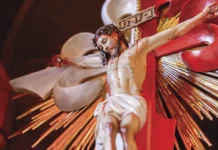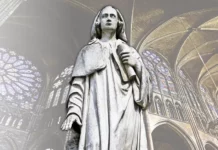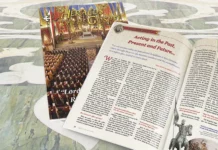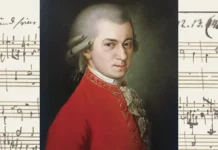Among the men called to be columns of the nascent Church, irreconcilable currents are revealed. But Christ united them all, making them Apostles and Saints.
The Messiah, so long awaited by the people of the Covenant, appeared. But the circumstances were not favourable: the Jews were pining under the domination of a succession of pagan nations, superior to them in military might.
A century had not yet elapsed since the descendants of the Maccabees, in 140 BC, had won a degree of independence from the Hellenic yoke, when another fearsome iron hand descended upon Judah: the power of the Roman Caesars.

Intolerable humiliation for the Chosen people
Conscious of their election by God, but also of the faults they had committed, the Hebrews had learned to see Yahweh’s hand in foreign domination—that He thereby sought to correct the hearts of His children and to reintegrate them along the path of fidelity to the Covenant. With the expiation and purification accomplished, God Himself, surpassing the severity of the punishment with mercy, attained the liberty of His chosen ones.
In messianic times, however, such an interpretation of slavery, exile, or foreign domination had lost its transcendental importance, in many levels of society, to become engulfed in a merely human outlook. Being under the Gentile yoke had become an intolerable humiliation, bound to spark movements of revolt, bent on vindication and reprisal. The question of the payment of taxes, for example, fits within this context….
Two irreconcilable camps
On the radical extreme of this trend was a party that had arisen at the time of Christ’s birth, probably composed of extremist Pharisees, who called themselves Zealots, for they claimed themselves to be the most zealous observers of the Law and its sole defenders—by the sword if necessary. They set up conflicts and subversions, in which they even killed their compatriots who paid the tax to the Empire or showed any allegiance to Rome. Thus, the public life of Our Lord unfolded in a setting riddled with the Zealot spirit and reality. 1
On the other extreme, there were accommodative clans, eager to contemporize with the demands and even the customs of the invader, in order to win their sympathy and obtain privileges. The publicans or tax collectors were of this number: members of the people, at the service of the Emperor, dedicated to the collection of the tribute, for obvious personal gain. It was an office that epitomized infamy for the practicing Jews, not only for its association with the Gentiles, prohibited by Law, but also because of the flagrant manipulation of the amounts to be paid.
Which of these currents did Jesus favour?
The economic tribute was such a controversial topic that, on one occasion, some disciples of the Pharisees and Herodians put Our Lord to the test: showing Him a coin bearing the effigy of Caesar, they asked whether it was licit or not to pay the tax. If the Divine Master were to affirm it licit, He would gain many enemies. If He were to speak against it, He would be at odds with the Romans… “Render therefore to Caesar the things that are Caesar’s, and to God the things that are God’s” (Mt 22:21), was the wise divine reply. The solution to the problem was proffered not as the taking of a position, but as an appeal to religious awareness: Attention! Men’s criteria are not God’s criteria.
In sum: the Reconciler of humanity, foretold by the prophets, came, and a great number of Jews found themselves at loggerheads, divided among a series of antagonistic factions. While the Zealots awaited a liberating Messiah, a military leader who would defeat the foreign power, other parties awaited a potentate with eminent administrative ability, a diplomat, who would give Judah economic supremacy over the other nations. Which of these currents did Christ favour?

Arguments for and against
The second option might seem likely, given Our Lord’s prodigality toward publicans and sinners (cf. Mt 9:11), two human types that were equally held in contempt. The Divine Master even chose a tax collector to be one of the Twelve: Levi, the Apostle St. Matthew. When he received Jesus’ call, “he left everything, and rose and followed Him” (Lk 5:28).
On the other hand, who was a more zealous observer of the Law than Our Lord Jesus Christ, Who came not to abolish the Law, but to fulfil it (cf. Mt 5:17)? Of Him it was said: “Zeal for Thy house will consume me” (Jn 2:17). Also among those called to the Apostolic College was one called Simon, “the Cananaean” or “the Zealot” (cf. Mk 3:18; Mt 10:4; Lk 6:15; Acts 1:13). Theologians are at odds as to whether this Apostle was actually part of the Zealot sect, before his conversion: “It is possible that Simon belonged to the party of the Zealots.” 2 Nevertheless, just as the term Cananean in this case, “has nothing to do with the region of the Cananaeans,” 3 likewise the name Zealot does not necessarily include him in the reactionary clan.
“In fact, the two descriptions are equivalent because they mean the same thing: indeed, in Hebrew the verb qanà’ means ‘to be jealous, ardent’ and can be said both of God, since He is jealous with regard to His Chosen People (cf. Ex 20: 5), and of men who burn with zeal in serving the one God with unreserved devotion, such as Elijah (cf. 1 Kgs 19:10). Thus, it is highly likely that even if this Simon was not exactly a member of the nationalist movement of Zealots, he was at least marked by passionate attachment to his Jewish identity, hence, for God, his People, and divine Law.” 4
Profound transformation in Christ
Thus, among those chosen to be the columns of the nascent Church, we find two whose sociopolitical inclinations, before the divine call, would in themselves have made them irreconcilable enemies: “Simon was worlds apart from Matthew, who, on the contrary, had an activity behind him as a tax collector that was frowned upon as entirely impure.” 5 And despite this profound ideological chasm, God made them Apostles and Saints, companions day by day, united in the circle of the most intimate followers of the Divine Master.
It was therefore necessary for them to divest themselves of the world’s criteria and to acquire a mentality befitting members of the Kingdom of God, begun on this earth and fully attained in eternity. This implied a profound transformation, only possible through Christ and by Christ, for, as St. Paul—who, let it be recalled, was a militant Pharisee before his conversion!— says, “For He is our peace, Who has made us both one, and has broken down the dividing wall of hostility” (Eph 2:14).
“This shows that Jesus called His disciples and collaborators, without exception, from the most varied social and religious backgrounds. It was people who interested Him, not social classes or labels! And the best thing is that in the group of His followers, despite their differences, they all lived side by side, overcoming unimaginable difficulties: indeed, what bound them together was Jesus Himself, in Whom they all found themselves united with one another. […] Let us also bear in mind that the group of the Twelve is the prefiguration of the Church, where there must be room for all charisms, peoples, and races, all human qualities that find their composition and unity in communion with Jesus.” 6 ◊







